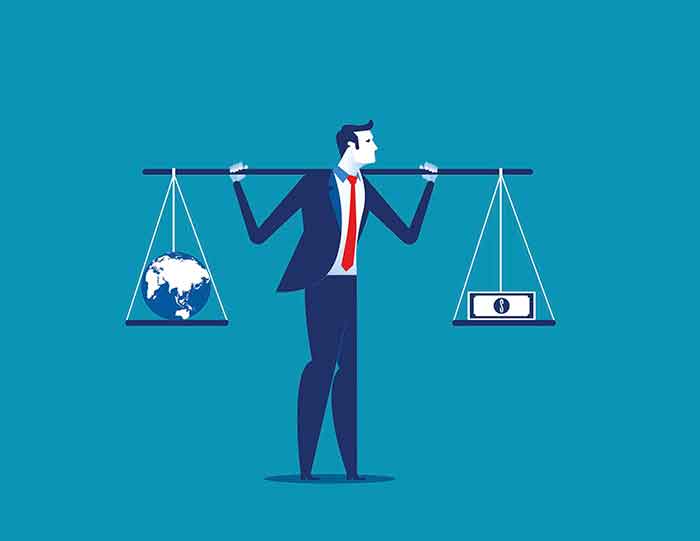
Many a person knows that “it takes money to make money.” So rather than frittering away financial assets, these many invest money in ways and means that are thought will likely lead to more capital being accrued.
Of course, any fiscal gain is often largely predicated on others needing or wanting some product or service which an investor has funded in the bet that he’ll get a good return in relation to his speculation.
A case in point involves someone purchasing shares in a movie production that is all but guaranteed to have high viewership rather than one that is all but ignored at the box office. The trick then becomes someone being able to shrewdly evaluate about which films will generate a considerable profit instead of loss of an investment.
Moreover someone can easily invest in ventures that can possibly create a staggering yield if he has enough money to spare and can afford to lose by gambling in high risk moves. Otherwise the more prudent course of action would be for someone to invest in markets that are sure and steady while typically bringing a much lower yield.
In consideration of basic financial necessities, it’s unfortunate that many folks don’t think far enough ahead so as to protect their hypothetical future selves. In fact, they don’t “save for a rainy day” meaning that there may be very lean times ahead if they do not increase their saved money or other assets by prudent means.
Put another way, they keep parting with valuable things that they own, as well as cash from their jobs and/or inheritance since they choose to live beyond their means. So they either rent a home that gobbles up too much of their capital or take out a mortgage on a dwelling that maybe won’t go up in value over the years as the market can’t bear it. They also take out loans for vacations, new attire and many other things that they covet.
In addition, lots of belongings that they do purchase depreciate in value such as most cars and trucks. They’ve mostly learned to accept the declining worth. All the same, it’s a given that some things do rise in value over time like rich farmland.
Accordingly, it seems pretty clear to some people that in light of water deficits, increasing lack of good soil as it blows away or is spent, droughts and other climate change impacts, a wise choice definitely is to snap up reliable finite resources like lucrative mines and farmland around the world. This especially holds true as the human population is expected to keep exponentially growing for some time to come while its needs multiply.
This in mind, it’s to be expected that certain countries and investors are snapping up assets like Afghanistan’s huge untapped copper mine and more, such as arable land whose worth will only rise over time barring some huge disaster. Meanwhile the acquisition of these valuable commodities has been shared in many article like:
Considering this matter, one of my friends wrote me: “
I understand that Bill Gates is buying up a lot of farmland. I expect that he plans to employ Precision Agriculture, robotics, and other technologies to automate farming. The effect on farm labor will be devastating.
“There has already been a lot of suffering. Factory farms in Latin America are replacing the small family subsistence farms which provided food along with the dignity of self sufficiency. Waves of immigrants coming here are a result.”
Roughly at the same time of my receipt of the above comment, another associate of mine wrote: “… One can understand why labor is revolting in many parts of the world. Oversupply of labor, automation/robotics, and debt squeeze. Capital has won this round big time.“
Yes indeed, capital has won out to the detriment of all economic classes except the ultra-rich one that keeps on gaining ever more financial advantages over time. Simultaneously, the middle and lower class wage workers for the most part keep struggling to not fall deeply in trouble and some take on soaring debt.
Yes, many adults are facing huge monetary difficulties whether debt free or not. This is partly because salaries don’t keep pace with commodities going up in cost. Simultaneously, the Coronavirus all but assures that any savings presumed to be for use in later years are disappearing, along with many kinds of jobs.
There are lessons to be learned herein. In part, they are that a new economic system needs to be explored rather than only maintain the current financial arrangement which largely just benefits those who already have great wealth.
Unfortunately a large proportion of people neither save, nor invest. As a result, they can end up being homeless, having poor health and facing other grave problems.
In relation, 45% of Americans claim to have no savings while 70% have less than $1,000 USD. Add Coronavirus into the mix and 40% of all U.S. households couldn’t now even come up with $400 USD for any expense whether it’s necessary or not.
One does wonder about whom will take care of the people who won’t have enough cash for retirement years. What do they think? Do they suppose that their kin or the government will give them the means to live? Perhaps they think that there’s time enough in the future to amass a large amount of money for old age. Sadly many of them are probably mistaken.
Sally Dugman lives in MA, USA.
IF YOU LIKED THE ARTICLE SUPPORT PEOPLE’S JOURNALISM










































